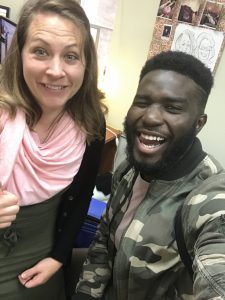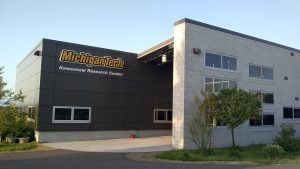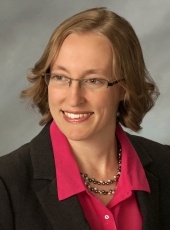 Victoria Sage, technical writer in the Center for Technology & Training (CTT), is the recipient of the 2018 Carmine Palombo Individual Award from the Michigan Transportation Asset Management Council (TAMC). In addition to her duties as a technical writer at the CTT, Sage is editor of the Michigan Local Technical Assistance Program’s The Bridge newsletter.
Victoria Sage, technical writer in the Center for Technology & Training (CTT), is the recipient of the 2018 Carmine Palombo Individual Award from the Michigan Transportation Asset Management Council (TAMC). In addition to her duties as a technical writer at the CTT, Sage is editor of the Michigan Local Technical Assistance Program’s The Bridge newsletter.
In announcing the award, the TAMC notes “Vicki’s work in these roles has been a great service to the TAMC in that many of Vicki’s efforts advance the strategies of the TAMC Work Program through key training and educational initiatives for professionals at local transportation agencies. Vicki has also provided leadership and advocacy of asset management principles as well as communicating relevant programs of the TAMC and transportation agencies across Michigan in helping develop stories in The Bridge.”
One of the driving factors in Sage’s nomination for this award was her role in development of the TAMC Bridge Asset Management Workshop. Using innovative features of common desktop software, she transformed the TAMC training into a focused workshop to quickly and easily create a bridge asset management plan for students attending the training.
“Vicki had a vision to improve the creation of bridge asset management plans, and she developed an innovative way to use everyday tools to help the workshop attendees,” says TAMC Bridge Committee Chair Beckie Curtis. “This innovation has been a game changer in terms of what can be accomplished in the training workshops and making it even easier for people to have a document that they can then use to organize treatments in a way that is financially manageable.”
Transportation asset management is a process of managing public assets, such as roads and bridges, based on the long-range condition of the entire transportation system. TAMC, created in 2002 by the Michigan Legislature, promotes the concept that the transportation system is unified, rather than separated by jurisdictional ownership. Its mission is to recommend an asset management strategy to the State Transportation Commission and the Michigan Legislature for all of Michigan’s roads and bridges.
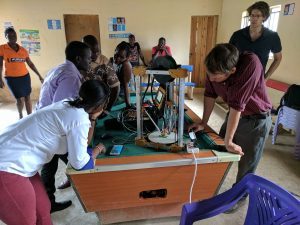
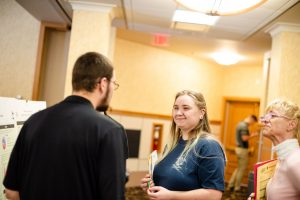 If you want to know if you have a passion for something, you should gain experience in it. Thankfully, Michigan Tech’s University Marketing and Communications department, or UMC, was my opportunity. I spent the past two semesters working in the department as a student writer. I had come into it with no idea what I would gain, but left with some important lessons.
If you want to know if you have a passion for something, you should gain experience in it. Thankfully, Michigan Tech’s University Marketing and Communications department, or UMC, was my opportunity. I spent the past two semesters working in the department as a student writer. I had come into it with no idea what I would gain, but left with some important lessons.